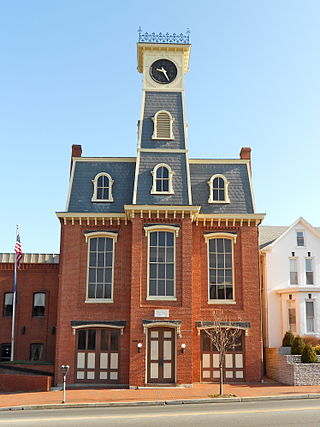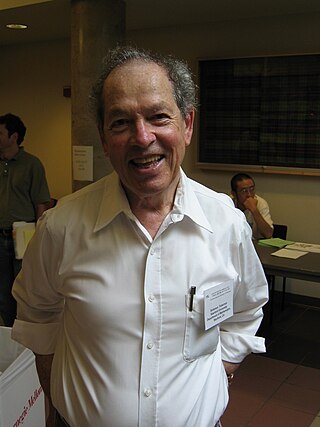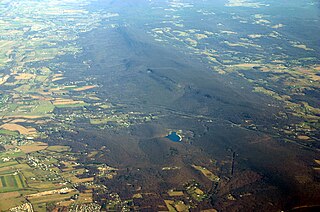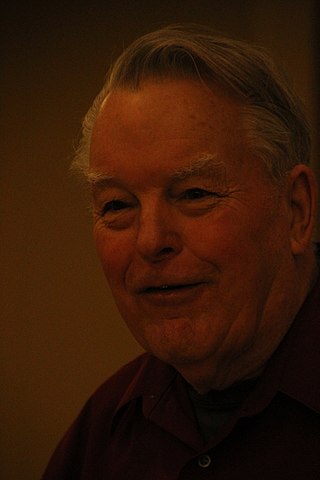
Waynesboro is a borough in Franklin County, Pennsylvania, United States. Located on the southern border of the state, Waynesboro is in the Cumberland Valley between Hagerstown, Maryland, and Chambersburg, Pennsylvania. It is part of Chambersburg, PA Micropolitan Statistical Area, which is part of the Washington–Baltimore metropolitan area. It is two miles north of the Mason–Dixon line and close to Camp David and the Raven Rock Mountain Complex.

Fan-Rong King Chung Graham, known professionally as Fan Chung, is an American mathematician who works mainly in the areas of spectral graph theory, extremal graph theory and random graphs, in particular in generalizing the Erdős–Rényi model for graphs with general degree distribution.

Solomon Feferman was an American philosopher and mathematician who worked in mathematical logic. In addition to his prolific technical work in proof theory, computability theory, and set theory, he was known for his contributions to the history of logic and as a vocal proponent of the philosophy of mathematics known as predicativism, notably from an anti-platonist stance.

The Aircraft Owners and Pilots Association (AOPA) is a Frederick, Maryland-based American non-profit political organization that advocates for general aviation. AOPA's membership consists mainly of general aviation pilots in the United States. AOPA exists to serve the interests of its members as aircraft owners and pilots and to promote the economy, safety, utility, and popularity of flight in general aviation aircraft.

Antietam Creek is a 41.7-mile-long (67.1 km) tributary of the Potomac River located in south central Pennsylvania and western Maryland in the United States, a region known as the Hagerstown Valley. The creek became famous as a focal point of the Battle of Antietam during the American Civil War.
Rexford G. Newcomb was an American architectural historian.

Monterey Pass is a 1,300 feet (0.40 km) mountain pass located in Franklin County, southern Pennsylvania.
The Hagerstown and Frederick Railway, now defunct, was an American railroad of central Maryland built in the 19th and 20th centuries.

Joseph A. Amato is an American author and scholar. Amato was a history professor and university dean of local and regional history. He has written extensively on European intellectual and cultural history, and the history of Southwestern Minnesota. Since retiring, he has continued publishing history books, as well as five poetry collections and his first novel.
Richard E. Foglesong is an American historian and political scientist who focuses on Florida and U.S. politics, New Urbanism and the politics of urban development, Hispanic politics, and the history of Walt Disney World and the Reedy Creek Improvement District. He is the George and Harriet Cornell Professor of Politics, Emeritus at Rollins College.

The Waynesboro Historical Society, Incorporated is an historical society founded in 1963 and based in Waynesboro, Pennsylvania. The Society's headquarters are housed in the Oller House. The society works for the preservation of landmarks and structures in the Waynesboro area and holds regular meetings, open to the public, which feature speakers on topics of local interest.

Benjamin Matthias Nead (1847–1923) was an American historian, author, newspaper editor, lawyer, and politician.

Ehud R. Toledano is professor of Middle Eastern history at Tel Aviv University and the current director of the Program in Ottoman & Turkish Studies. His areas of specialization are Ottoman history, and socio-cultural history of the modern Middle East.
Karen Ellen Smith is an American mathematician, specializing in commutative algebra and algebraic geometry. She completed her bachelor's degree in mathematics at Princeton University before earning her PhD in mathematics at the University of Michigan in 1993. Currently she is the Keeler Professor of Mathematics at the University of Michigan. In addition to being a researcher in algebraic geometry and commutative algebra, Smith with others wrote the textbook An Invitation to Algebraic Geometry.
Ann Dryden Witte is an American economist, known for her work on "a variety of interesting and eclectic problems" and as a "prolific author of books, monographs, and professional articles". She is a professor emerita of economics at Wellesley College, and a research associate of the National Bureau of Economic Research.
Jon C. Teaford is professor emeritus in the History Department at Purdue University. He specializes in American urban history and early on in his career he specialized in legal history.
Patricia Clark Kenschaft was an American mathematician. She was a professor of mathematics at Montclair State University. She is known as a prolific author of books on mathematics, as a founder of PRIMES, the Project for Resourceful Instruction of Mathematics in the Elementary School, and for her work for equity and diversity in mathematics.
Ruth Hege Howes is an American nuclear physicist, expert on nuclear weapons, and historian of science, known for her books on women in physics.
Jeanne Clare Ridley was an American sociologist, statistician, and demographer, known for her work on fertility.
The Mennonites in Maryland maintain a small population dating back over a century. The majority of Maryland's Mennonites live in Southern Maryland or on the Eastern Shore, while smaller Mennonite communities exist in Grantsville, Baltimore, Howard County, and elsewhere scattered throughout the state.










